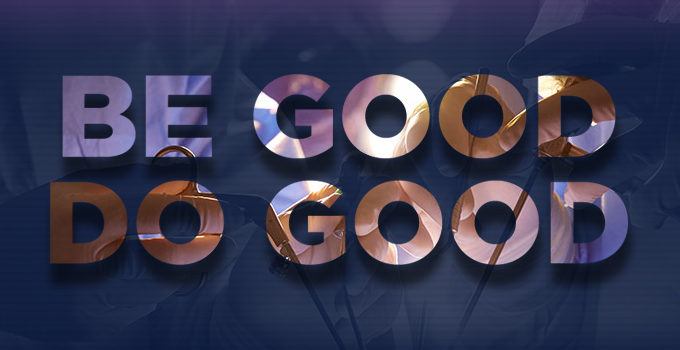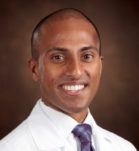

Be Good, Do Good: the Code of Each Neurosurgeon
by Walavan Sivakumar
Be good, do good.
As a physician and neurosurgeon, I entered into this profession with the aim of healing people and making their lives better. After years of training and practice, I am fulfilling that goal everyday that I consult with a patient or go into the operating room. At Pacific Neuroscience Institute located at Providence Saint John’s Health Center and Providence Little Company of Mary Torrance, and Saint John’s Cancer Institute in Santa Monica, I’m at the beginning of what I hope is a long and fulfilling career and I am privileged to work alongside colleagues who provide guidance and mentorship.
With years of experience behind them, one could suppose that an air of desensitization would have set in, but that is not the case. The people I work with are completely committed to the care of each patient they see and that is what I value most.
In a recent speech by Dr. Mitchel S. Berger, Chairman of Neurosurgery at UCSF, I was reminded of this as he talked about some simple yet very powerful tenets that shape us as neurosurgeons and can easily translate into all of our daily lives.
10 Commandments for the Next Generation of Neurosurgeons
- You must believe in yourself and your ability to alter the life of another person and contribute to our profession of neurosurgery.
- You must strive to achieve a perfect outcome each and every day you care for another individual.
- You must repeat to yourself every day when you enter the hospital or operating room, “I will give 110% today and stay focused no matter what I encounter.”
- You must leave your personal problems outside of your professional world.
- You must stay physically and mentally fit.
- You must periodically evaluate your results and outcomes to determine if you are still making progress, on the plateau, or deteriorating.
- You must always read and learn from others as well as from your failures and successes.
- You must never compromise in your pursuit of perfection no matter what forces exist to have you accept less than perfection.
- You must always make a decision and never be indecisive. If you do this you will always make more right than wrong decisions.
- You must never be shaken or discouraged by a bad outcome or complication, but you must always feel the pain of the patient and their family and know that you have changed their lives forever. Mourn your errors, mourn your losses, but pick yourself up and fight for the next patient’s life.
Excerpt taken from my original article written for the AANS/CNS Section on Tumors, September 2017. Reprinted with permission from Dr. Berger.

Walavan Sivakumar, MD, is a fellowship-trained neurosurgeon at Pacific Neuroscience Institute and Assistant Professor of Neurosurgery at Saint John’s Cancer Institute. His focus is on skull base and minimally invasive and endoscopic neursosurgery. Dr. Sivakumar’s particular interest and specialization is in brain tumors, skull base tumors, pituitary/parasellar tumors, and intraventricular brain tumors. His expertise is in the use of the keyhole concept, utilizing advanced neuroimaging and microsurgical techniques to minimize collateral damage to the brain.
About the Author

Walavan Sivakumar
Walavan Sivakumar, MD, is a fellowship-trained neurosurgeon at Pacific Neuroscience Institute and Assistant Professor of Neurosurgery at Saint John’s Cancer Institute. His focus is on skull base and minimally invasive and endoscopic neursosurgery. Dr. Sivakumar’s particular interest and specialization is in brain tumors, skull base tumors, pituitary/parasellar tumors, and intraventricular brain tumors. His expertise is in the use of the keyhole concept, utilizing advanced neuroimaging and microsurgical techniques to minimize collateral damage to the brain.
Last updated: October 12th, 2017